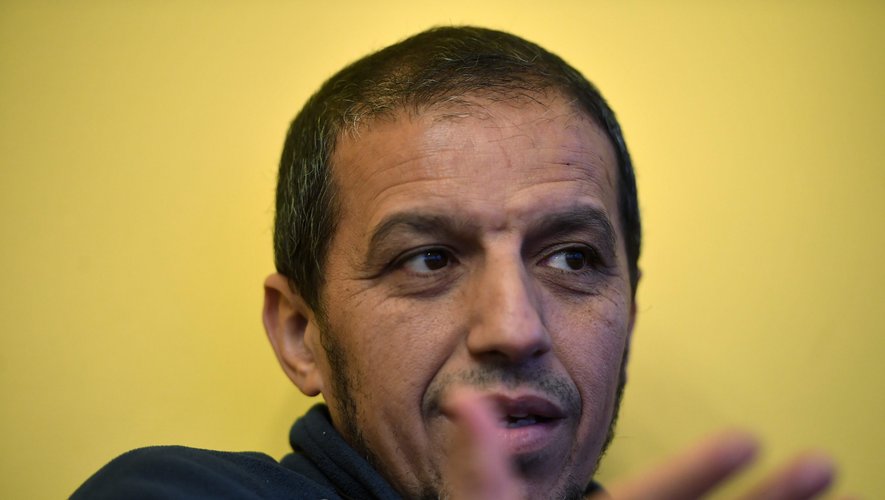The 6th of September, Tariq Ramadan made his return to public life with his first media appearance, as he took part to a TV interview Friday 6thof September on French channels RMC and BFM TV. This come back coincided with the publication of his book titled « Devoir de vérité » [Duty of Truth] a few days later, the 11th of September, in which he gave his own version of the accusations, against him. The Swiss national, who is a major figure of French and European Islam, has been released on bail due to health reasons in November 2018, but still attracts a lot of comment and publicity.
In both the interview and his 283 pages book, Tariq Ramadan developed a defence of the allegations he has faced, since the accusation of rape in 2017, and his 10 months in jail. He presented himself as the victim of a “trap”, evoking the issue of racism, denying the accusation of rape. Ramadan explained that he has never been violent and, for the first time publicly, claimed consensual sexual relations with the complainants. Questioned during the interview on the fact that he has lied regarding his private life (as he initially denied any extra marital relations), he acknowledged this, made justification by way of protecting his family. He then asked for forgiveness, conceding that his actions had not been in accordance with his religious commitment, but maintained he had done nothing that was illegal.
The public appearance of Tariq Ramadan has been widely commented on by the media, which emphasized two main objectives in his speech. Firstly, Ramadan “counterattack” might be analysed regarding his juridical cases, while secondly it must also be understood as a stand, for his Muslim audience. More broadly, the majority of the political sphere has been hostile to his come back, and many politicians strongly expressed their concern. Conversely, the “traditional leaders” of the “Muslim community” in France and some major representatives of Islam in France remained quite silent. However, a significant change of attitude might be noticed by one of his major supporters, the federation “Musulmans de France” [Muslims of France], formerly known as the “Union des Organisations Islamiques de France or UOIF” [Union of Islamic Organizations in France]. In a press release, “Musulmans de France” finally withdrew its support for Tariq Ramadan and declared being betrayed and chocked because of his ethical behaviour. In response, Ramadan has confided his misunderstanding on a community radio a few days later and criticized a press release aimed at politicians and the media.
In response to the silence of their “elders”, the “young” generation of “Muslim leaders”, especially those who are very active on social media, reacted to the return of Tariq Ramadan. They developed a much more critical point of view and mainly justified their reactions to such case as unusual and driven by both the seriousness of the situation and the necessity to talk to the Muslim audience. The Imam Ismaïl Mounir made a video on YouTube and did a radio interview where he asked to dispassionate the debate and to adopt the right posture. To do so, he made a comparison with the way he treated the polemic surrounding Eric Zemmour (a TV journalist and columnist who regularly expressed islamophobic positions) and encouraged the Muslim community to calm and to act based on reason. As such, he declared himself neither pro nor anti Ramadan, and affirmed he wants to let the justice system do its work. Even if he criticized the public return of Ramadan (he said it would have been better for him to keep a low profile) he pointed out the contradiction between his former works – valuable for “French Islam” – and his acts as a man. This position constituted a major difference with other famous figures. Indeed, the Imam Eric Younous, who is also a popular preacher, used a much more aggressive tone and unambiguously expressed his hostility towards Ramadan. After a reminder of his acts, insisting on their gravity, particularly as Ramadan was a leader and enjoyed a large audience, he specifically addressed him in the video. Eric Younous encouraged him to retire from public life and to require repentance from God, for both his behaviour and his intellectual works. For him, the comportment of Tariq Ramadan might reflect the low quality of his previous doctrine and he urged him to stop talking in the name of Islam and to teach it.
Despite the unfailing support of the committee “Free Tariq”, Tariq Ramadan appears weakened, as most of his longstanding support has turned away from him since the beginning of the so-called “Ramadan case”. In 2018, Qatar, which has been an important financial sponsor (especially for his Chair at Oxford University), removed its support. Also some historical allies, such as the Tawhid Centre, distanced themselves from him a few months ago. The opinions of “ordinary” French Muslims, on the return of Tariq Ramadan, remain practically impossible to gauge regarding the vast diversity of views on the topic. However, even if his most faithful supports continue to stand behind him, his popularity might shatter because of the end of his “exemplarity”.
Sources
https://www.letemps.ch/monde/tariq-ramadan-lheure-contreoffensive-mediatique






